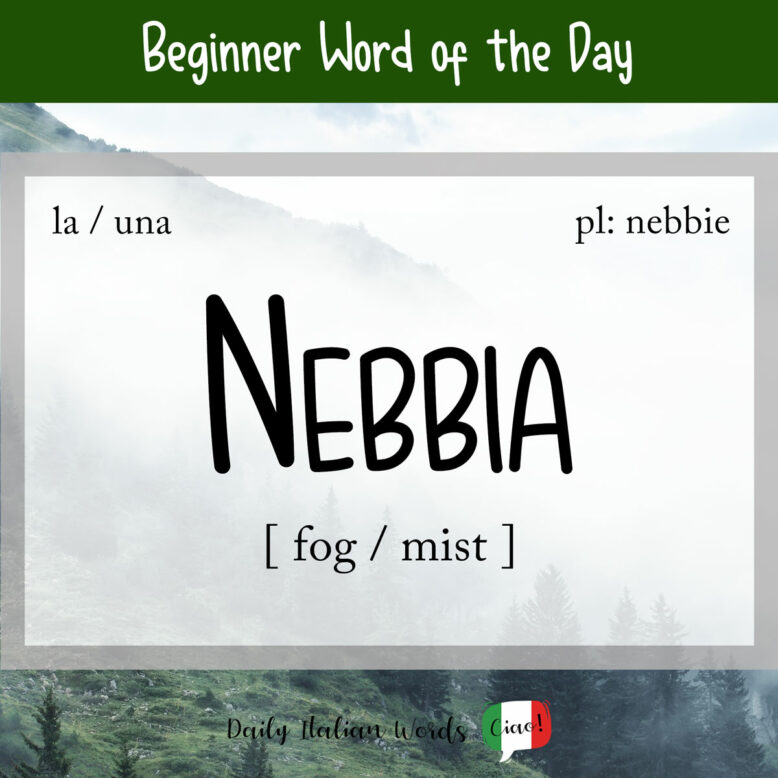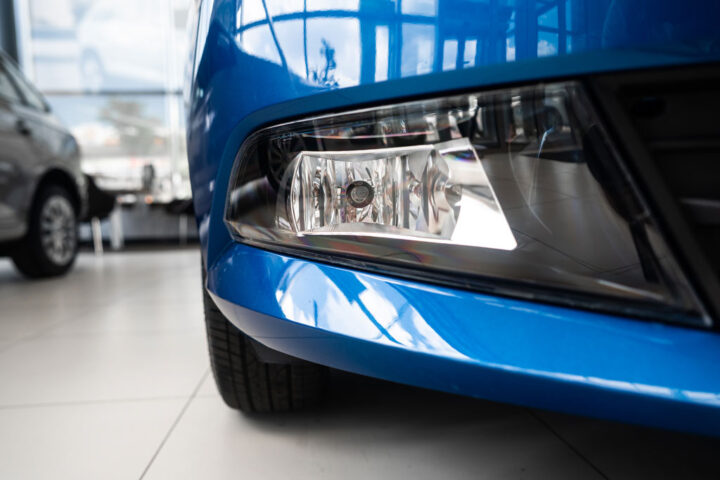The word for fog in Italian is nebbia (feminine, plural: nebbie). If you have trouble remembering this word, I find it helps to create a mental association with the astronomical term nebula with which it shares the same Latin origin.

Fog can be described according to its thickness (e.g. fitta = thick; densa = dense; rada = thin), location (e.g. alta = high; bassa = low) or colour (e.g. grigia = grey; bianca = white).
The diminutive nebbiolina (lit: little fog) and augmentative nebbione (lit: big fog) are additional ways of describing thin fog and thick fog respectively.
A common expression used to describe very thick fog is:
C’è una nebbia così fitta da poterla tagliare a fette.
The fog is so thick you could cut it with a knife.
(Lit: There is a fog so thick you could cut it into slices.)

Nebbia vs foschia = Fog vs mist
Meteorologists talk about fog when visibility is less than 1,000 meters, or mist if you can see further than 1,000 metres. The same is valid in Italy with nebbia and foschia (mist). These criteria are in accordance with the World Meteorological Organisation or WMO.
Figuratively speaking, nebbia can be used to describe something that does not last long, has no consistency, or has no significant effect. It is from this sense of the word that we get the expression stringere nebbia (lit: to grasp fog) which means to do something in vain or to end up empty-handed.
A second figurative meaning is anything that obscures the faculties of the spirit and/or mind. For example, la nebbia dell’ignoranza translates as the fog of ignorance.
Some possible synonyms for nebbia include:
- bruma = light fog, mist, brume
- caligine = haze, mist
Related to nebbia are the words nebbioso (adjective meaning ‘foggy‘), annebbiare (verb meaning ‘to fog‘), annebbiato (past participle of annebbiare which means ‘fogged up‘), and nebbiosità (adjective meaning ‘fogginess‘).
Questa mattina c’era un’alba nebbiosa.
There was a foggy sunrise this morning.
The word antinebbia (literally ‘anti fog’) appears in the word for fog lamp in Italian which is faro antinebbia. Fari fendinebbia or just fendinebbia are fog lights for cars.

Heather Broster is a graduate with honours in linguistics from the University of Western Ontario. She is an aspiring polyglot, proficient in English and Italian, as well as Japanese, Welsh, and French to varying degrees of fluency. Originally from Toronto, Heather has resided in various countries, notably Italy for a period of six years. Her primary focus lies in the fields of language acquisition, education, and bilingual instruction.


